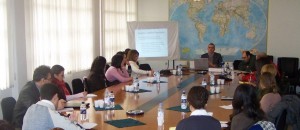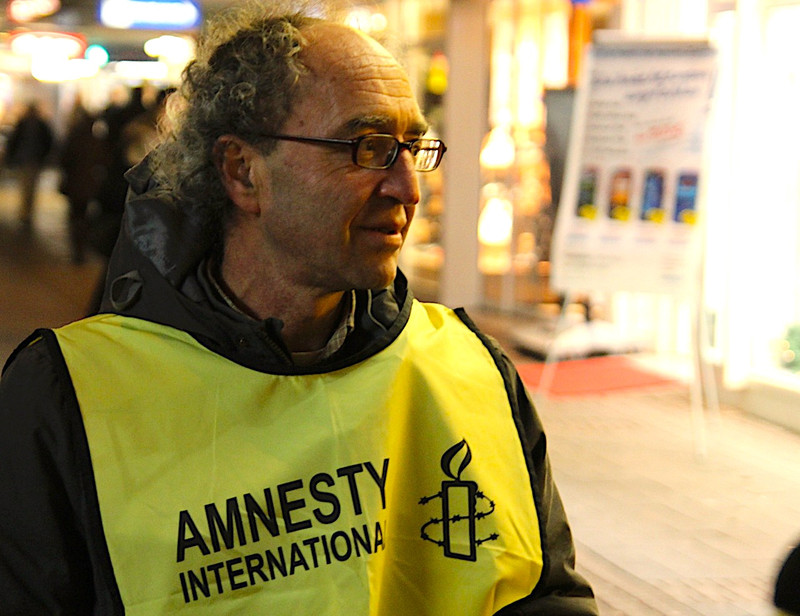

After showing a video of recent demonstrations in the Tunisian capital, Giragosian noted that “the wave of unrest was largely a leaderless revolution that was both sudden and spontaneous.” He traced the lack of leadership to the fact that “most of the demonstrators were driven by a spontaneous reaction to the accumulation of frustration, hopelessness and humiliation of years of corruption, restrictions on political freedoms and a general arrogance of power exhibited by the Tunisian government.”
He further noted that the recent developments in Tunisia were especially significant for Armenia, as the situation demonstrated five key factors: (1) the inherent weakness and vulnerability of states hindered by little real legitimacy; (2) the sudden and explosive power of public rage and discontent; (3) the economic and demographic roots of such popular discontent; (4) the power of the Internet and social media tools in terms of activism and organization; and (5) the cumulative effects of an “arrogance of power” by the ruling political elite. The analysis also examined the impact of economic pressure on political stability and development.
Giragosian concluded by stressing that “although there were several broader lessons from the Tunisian situation, what was most crucial for Armenia was the recognition of the danger of ignoring public demands for change and the need for deeper and durable reform.” He also stated that “the lessons from Tunisia were even more applicable to the case of Azerbaijan, mainly due to the dynastic nature of the Azerbaijani government, making Baku especially vulnerable to growing discontent and possible unrest in the face of a pronounced lack of legitimacy and its notable disregard for democratic reforms.”
The Positive Outcomes of the Brussels Meeting
By: K. KHODANIAN Last September, Azerbaijani troops invaded Artsakh, prompting over…
- MassisPost
- April 14, 2024
- No comments
- 2 minute read
It’s Not Armenia That Has Distanced Itself From Russia, but Rather the Other Way Around
By K. KHODANIAN Armenia and Russia are experiencing notable tensions in their…
- MassisPost
- April 7, 2024
- No comments
- 2 minute read
Stating the Obvious: Kigali Genocide Memorial and the Armenian Genocide
Gomidas Institute Initiates Campaign on Kigali Genocide Memorial and the Armenian…
- MassisPost
- April 7, 2024
- No comments
- 3 minute read
How an Armenian Family Helped in Building Modern Egypt
By ARUNANSH B. GOSWAMI Recently the author of this article was in…
- MassisPost
- April 5, 2024
- No comments
- 5 minute read










